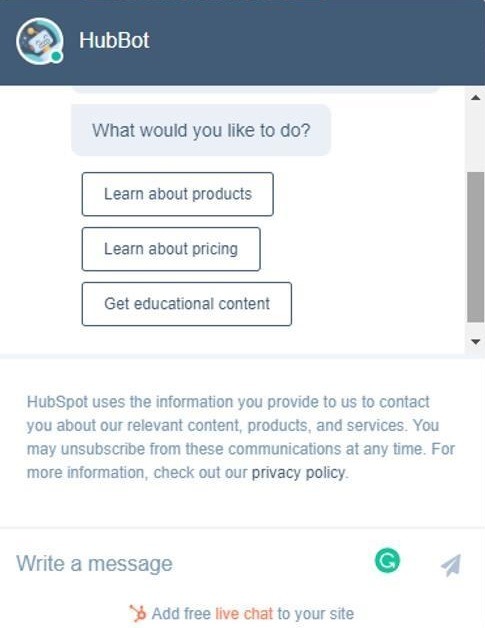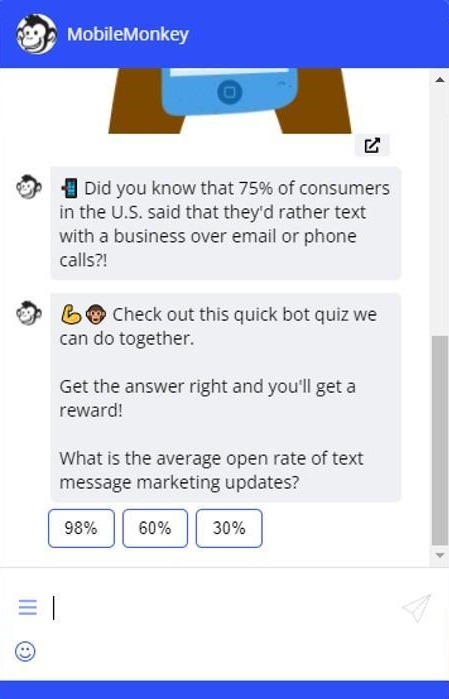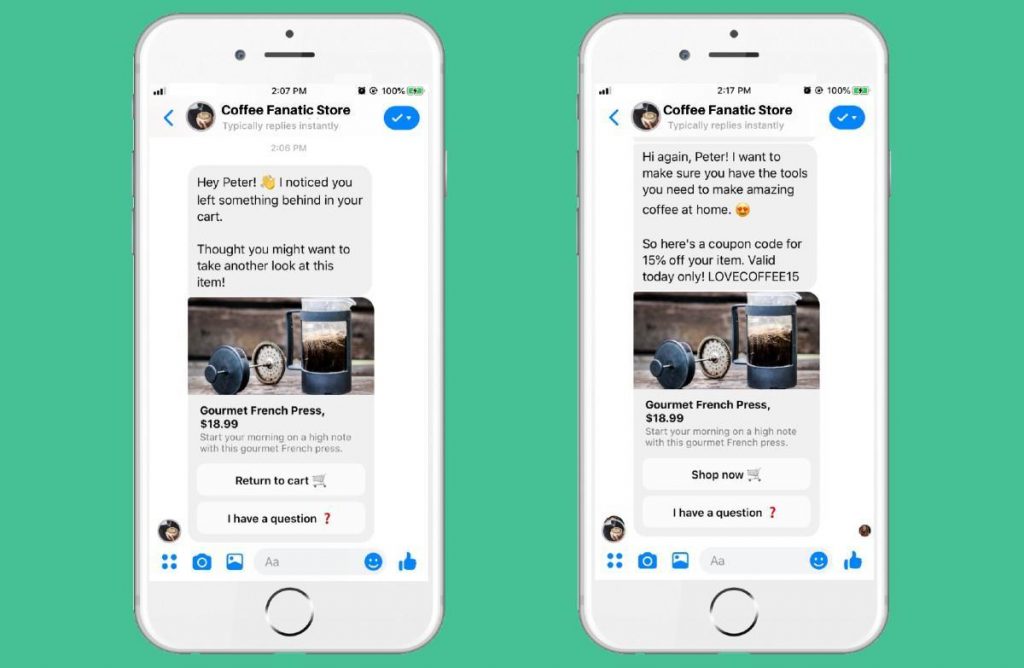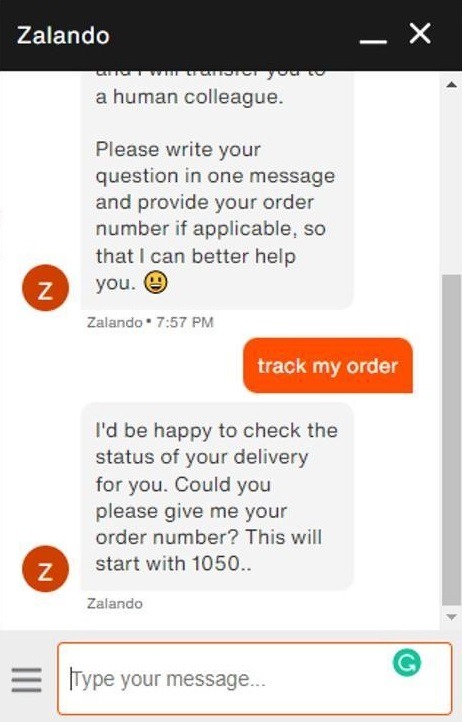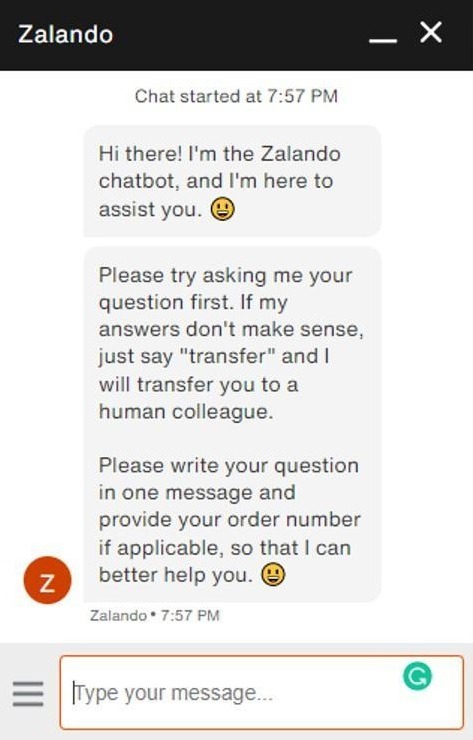How to Use Chatbot Marketing to Grow Your Business
Over the past two decades, digital technology has revolutionized marketing. From social media to the use of machine learning and AI, digital marketing has changed how businesses operate and promote their products.
Chatbots are just one of the latest eCommerce trends that are starting to see wider acceptance across the industry. Unlike yesterday’s chatbots that could never come up with the correct answers to users’ questions, modern chatbots are more sophisticated and smarter – sometimes, they respond just like human agents!
And the payoff? Higher customer engagements and more conversions!
So, in this article, we will discuss different ways online stores can use chatbot marketing to scale their eCommerce brands. This includes using chatbot marketing to:
- Increase Lead Generation
- Improve Customer Engagement
- Support Remarketing
- Streamline Customer Journey
But before we discuss how you can utilize chatbot marketing, let’s take a quick look at its basic concepts and why your online store should look into using them.
What is Chatbot Marketing?
Chatbot marketing involves using chatbots to promote products or services. The bots are designed with advanced artificial intelligence that allows them to answer different questions, recommend products, take orders, pitch cross-sells and up-sells, and so on.
Moreover, certain chatbots are programmed to recognize specific keywords and use them to serve relevant results.
For example, let’s say a prospect lands on your online store and mentions “men’s shoes” while messaging the chatbot. An advanced bot can analyze that keyword contextually to produce relevant results. It can answer with a link to the product page with men’s shoes, for example. In doing so, the chatbot enhances the customer experience and speeds up the conversion process.
That perfectly explains why chatbot marketing is becoming so popular in the digital world. The bots help businesses generate leads and save on customer service costs. Not only that, but consumers also seem to enjoy this new customer experience involving chatbots.
About 65% of customers want to use AI chatbots for self-service when dealing with small matters. Also, if your customer base is primarily millennials, you will love the fact that over 60% of them already use chatbots. The best part? 70% of those millennials report a positive experience.
Chatbot Marketing Benefits
Perhaps the biggest benefit of chatbot marketing is that it can save your online store time and money.
A report by Chatbot Magazine suggests that chatbots could save businesses up to 30% in customer service resources. That’s because these bots can function 24/7, and they are cheaper than human customer reps.
Chatbots will also help you deliver quicker responses to your customers’ queries. That’s critical, since modern consumers value responsive businesses.
[Source: Toistersolutions]
It’s evident that consumers want instant responses. Chatbots are your best bet at meeting customers’ expectations. Businesses understand that all too well, and that’s why all top eCommerce platforms, including Shopify and WooCommerce, make chatbot installation a straightforward process.
Moreover, chatbots can help you segment the traffic landing on your online store.
As you know, not every website visitor is ready to purchase. Some people are there to explore their options. Others want to compare your prices with the competitors’. Chatbots can help you segment this traffic, making it easier for you to meet website visitors where they are in the customer journey.
The segmentation can work hand in hand with lead scoring.
Example: A chatbot can ask a series of questions and use the visitor’s responses to place them in the right stage of the sales funnel. For instance, if the visitor is interested in prices and offers, they may be placed toward the bottom of the sales funnel. On the other hand, if the visitor is interested in general information, they will be grouped somewhere at the top of the funnel.
Either way, both the bots and your sales team will have an easier time dealing with every visitor.
For example, the chatbot can push for conversion by presenting a discount if the visitor appears to be at the bottom of the funnel. The bot could also connect a real sales rep to take over the process and help the visitor pick the right product.
Let’s now get practical and see how you can use chatbot marketing to boost your online store’s revenue.
How to Use Chatbot Marketing to Grow Your Business
1. Increase Lead Generation
By integrating popular messaging apps like Telegram, Whatsapp, and Facebook Messenger, chatbots can reach a broader audience of potential shoppers. Statistics already show that more than 100,000 chatbots are being used in Facebook Messenger. Brands use these chatbots to recommend products, collect customer information, take orders, etc.
Therefore, you cannot ignore chatbot marketing on social media.
That’s especially true when you consider Facebook Messenger has over 140 million users in the US alone. These chatbots can generate leads from social media and move them along the digital marketing funnel before turning them into paying customers. You can also set up rules that allow your sales rep to intervene and close the deals as needed.
We also cannot ignore the fact that chatbots are capable of multilingualism. That essentially means that chatbot marketing can give you access to the vast global market. Just deploy multilingual chatbots to interact with potential customers from different parts of the world.
That’s what Polysleep, a Canadian mattress retailer, uses.
[Source: Polysleep Facebook Messenger Chatbot]
Social media aside, you can also deploy chatbots on your own website. Here, they will help with both lead generation and scoring. Just set up one or several questions to help the bots group visitors into relevant clusters.
From there, the bots can start to either recommend products or provide valuable information to the respondent based on their answers to the initial questions.
That’s what HubSpot’s chatbot, called HubBot, does. After selecting one of the three options, the bot is able to serve users with the right content.
Additionally, advanced eCommerce chatbots like Mobile Monkey, Octane, and Chatfuel can boost your sales in the following ways:
- Enhancing the customer experience by eliminating disruptive sales tactics. While features such as pop-up windows tend to be less popular with customers, a chatbot window is relatively innocuous, sitting in the corner of the screen until needed.
- Identify highly interested prospects through specific keywords. For instance, if a prospect expresses an interest in a particular product, the chatbot might suggest placing an order within the chat, offering further details where necessary.
2. Improve Customer Engagement
You can use Chatbots to boost customer engagement in various ways. For starters, these bots are available 24/7/365, something that’s difficult and expensive to achieve with real customer reps.
The round-the-clock availability allows you to serve prospects and customers at any time of the day. It also allows your store to operate across all time zones. That can help you generate more leads and increase your revenue with minimal input from humans. The bots can collect prospects’ contact details and push for up-sells and cross-sells all while you are asleep, for example.
Mobile Monkey’s chatbot is a great example here. It hooks users with a simple trivia question. It also claims there is a prize for respondents who get the question right.
But guess what? This bot will give you the prize whether you get the answer right or not. That’s because the bot’s objective is not to test your knowledge. It simply wants you to engage. And once you do that, it will request your contact details to send over your prize.
[Source: Mobile Monkey Chatbot]
Tip: You can set up a similar bot for your online store. Create a simple multiple-choice question and promise the respondents a prize. Something like a discount or free shipping should work just fine. You will see more engagements, which will give you tons of prospects’ contact details.
Increased customer engagement also makes it easier to know what the potential customer is interested in. That, in turn, allows you to target them with personalized product recommendations. Your sales rep can take over the conversation and make those recommendations. You can also run retargeting campaigns to target the prospects with personalized ads that are likely to convert.
With all that said, it’s worth remembering that communication styles are highly subjective. What works for one prospect might not be favorable to another, so offer alternative methods of communication (such as email).
Giving your customer the option to communicate via alternative platforms, especially on product pages, helps improve your relationship with them.
3. Support Remarketing
Advanced chatbots can help you run remarketing campaigns seamlessly. Let’s say a prospect comes to your online store then starts interacting with the Facebook Messenger chatbot about a particular product. But, the prospect abandons your website and the conversation before buying the product. That happens because most first-time site visitors are never ready to buy.
However, instead of letting the lead forget about your brand, you can use a chatbot to remarket the product later.
Example: They could send a message reminding the lead about the item they looked at. You can even set up the chatbot to include a time-sensitive coupon code in the message to incentivize the lead into completing the purchase.
Did you know that chatbots can also help reduce cart abandonment? Chatbots can track visitors’ activities from the moment they land on your website.
So, let’s assume a visitor adds several products to the cart but does not checkout. Your chatbots can intervene and send a cart abandonment message a few hours later. Again, you can use incentives like discounts to sweeten and close the deal.
4. Streamline Customer Journey
Finally, chatbot marketing can help you streamline the customer journey.
One way chatbots will do that is by helping prospects quickly find the products they want.
Website visitors can ask chatbots questions regarding specific products instead of browsing through your entire catalog. The bots can produce a link to that product and may even recommend other alternative items. That can be instrumental in speeding up conversions.
Online stores like Zalando also use Chatbots to facilitate order tracking. Not only does this improve customer experience, but it relieves the human customer reps from simpler tasks. That allows the reps to focus on more meaningful tasks, like closing more deals.
Chatbots also improve the customer journey by providing instant responses. That’s one of the biggest benefits of chatbots, and it’s also why you cannot rely on human customer reps alone. Chatbots address visitors’ queries instantly to facilitate a smooth experience.
Compare that to emails where potential buyers might have to wait for hours to get a response. Even human customer reps can hardly match the efficiency of bots. Relying on human customer representatives alone means you’re likely to expose prospects to longer wait times, which modern consumers despise.
That said, there is also space for human customer reps. Don’t just deploy a chatbot and shut down your customer support team. Integrate the two.
For example, the chatbot from Zalando Lounge allows users to switch to a human customer rep by just typing “transfer.”
[Source: Zalando]
Combining chatbots with human customer reps enhances the customer experience even more.
Conclusion
Chatbots have come a long way since the first – Eliza – was introduced in 1966. And although technology is still not perfect, modern chatbots can do so much more. That’s why more and more online businesses are adding chatbots to their marketing arsenals.
As this article has shown, your online store can benefit from chatbots and use them for marketing in various ways:
- First, chatbots can improve lead generation for your store. They can help you capture more leads on your website and even on social media.
- Second, chatbots improve customer engagement. This, in turn, makes it easier to connect with prospects, understand their needs, and pitch your products appropriately.
- Third, chatbots also support remarketing. You can use chatbots to track prospects’ activities on your online store, then retarget them with relevant ads. You can also send cart abandonment messages via chatbots.
- Finally, chatbots can streamline the customer journey, resulting in more sales and satisfied customers.
Hopefully, this article has opened your eyes to the vast possibilities of introducing chatbot marketing in your eCommerce store’s marketing strategy. So, go ahead and set up the bots, then start tracking your results.
Bonus: How to Build Your Own Bot
Bot types include utility bots designed to resolve a problem or query via chat. In contrast, informational bots (as the name suggests) provide an alternative media platform for users to consume information, such as news. The following steps can help you create an effective chatbot tailored to your business goals:
- Decide on your platform: while some business-oriented chatbots are more at home on corporate platforms, you might decide that less-formal options are more suited to your brand.
- Give your bot some personality: you can make its conversational tone as informal, or formal, as you like. Create a customer persona in line with your overall brand image and give it a unique name related to your business (such as “Fitbot,” if you run a company related to exercise and working out).
- Create a flowchart that will provide a framework to help build your chatbot’s conversational range.
- Some of the more complex bots today employ Natural Language Processing (NLP) systems that deal with the interaction between human language and computers, processing large quantities of information to produce more natural-sounding bots.
- Connect your bot to your chosen messaging app and test it on friends and colleagues to assess how well it communicates. In developing your bot’s vocabulary, set it up so it can understand natural quirks of speech as written by humans, such as colloquialisms, slang, or acronyms.
- Finally, promote your chatbot so that everyone knows about it – more engagement leads to increased capability. You can increase your reach further by adding it to chatbot directories and catalogs.


Jimmy Rodriguez
Jimmy Rodriguez is the VP of eCommerce at Shift4Shop, a completely free, enterprise-grade eCommerce solution. He’s dedicated to helping internet retailers succeed online by developing digital marketing strategies and optimized shopping experiences that drive conversions and improve business performance.
Comments
comments
Powered by Facebook Comments




